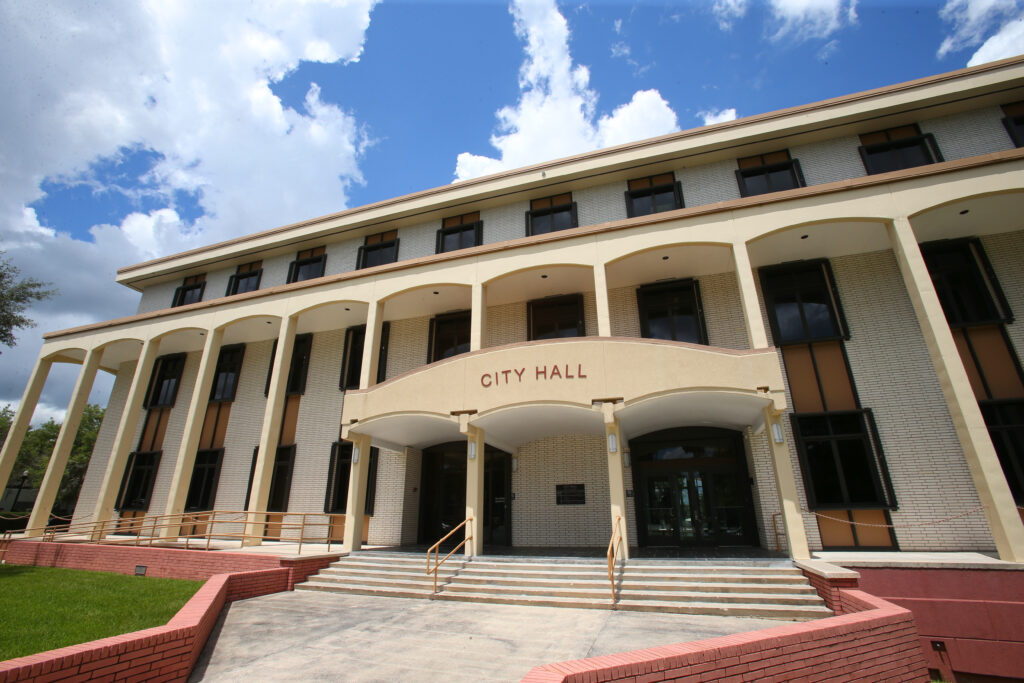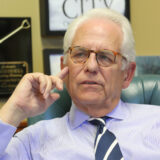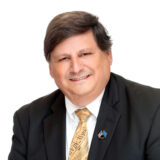Q & A with the candidates

Editor’s Note: Leading up to the city election, we’ll be asking candidates to weigh in once a week on a question about city government. The candidates are given almost a week to respond to the question in writing and we do not edit their answers.
In February, U.S. District Judge James Moody ruled that arresting homeless people who don’t have access to shelters is cruel and unusual punishment violating the Eighth Amendment of the U.S. Constitution. What should be the city’s options for responding to people who are violating the city’s open lodging ordinance?
These candidates did not answer the question: Alex Everts, Brent Malever, Gregory Steen, Jay Musleh, Kevin Lopez, Lori Martin Gregory, Rusty Juergens
 Kristen M. Dreyer:
Kristen M. Dreyer:
Homelessness is a complex social issue than cannot be looked at as a one-size-fits-all issue. We have many dedicated people and agencies devoted to ending homelessness. Some, such as Brother’s Keeper and Interfaith, successfully lead a coordinated effort.
A 2019 a study by the Public Policy Institute of Marion County indicated the need to move to a housing first model with the goal of reducing homelessness in the county by 60% by 2024. The study not only addressed the criminalization of homelessness but also identified 8 key areas to addressing the needs of our homeless population. To date, to the credit of our community stakeholders, several of these recommendations have been accomplished. However, we still have a dire need for emergency temporary shelter that allows for a reduction in the barriers to obtaining emergency shelter.
The Florida Housing Coalition talks about, “the current “services first” model that requires anything from sobriety to employment to receive services and, eventually, housing placement. These requirements and barriers created by provider agencies resulted in slow exits to housing, long lengths of stay in temporary or transitional shelter, and a backlog of people “stuck” in the crisis system. “
It’s time to take another look at whether our current model is accomplishing the goals as set forth by the Public Policy Institute and to bring the stakeholders back to the table to accomplish these goals once and for all, both for the betterment of our community and for the safety and stability of our homeless population.
 Manal Fakhoury:
Manal Fakhoury:
Sending people to jail for being homeless is not a solution or even a band-aid – it is a public policy failure. It is time to repeal the open lodging ordinance and shift our approach away from criminalizing homelessness to ending it permanently each homeless person at a time.
First and foremost, we must follow a Housing First approach, a tight coordination between public, nonprofit, and private stakeholders, and a clear path for permanent and stable housing. The best way for cities to help their homeless populations is to house them and support them with services to help them find stable employment, health care, and child care services. Though this may be challenging for cities with limited affordable units and rising rents, these are the steps that must be taken to support these most vulnerable populations.
I believe we need to create a system to identify the chronically homeless and match them to appropriate affordable housing. I plan to coordinate this service system to support long-term housing stability, and create enough permanent housing to meet the demand. As mayor I plan to spearhead the creation of a resource center to center this work and serve our homeless and transitioning citizens.
In our efforts we must collaborate with communities that have been successful in decreasing their homelessness rates – for example, Grace Marketplace in Gainesville – a success story for reducing homelessness and creating permanent solutions.
Ocala has many invested community partners who will rise to the mission of helping alleviate homelessness, and as mayor I plan to use the office of the Mayor to work in coordination with all Ocalans to serve every Ocalan – including our most vulnerable – the homeless.
 Barbara Fitos:
Barbara Fitos:
Progress has been made with the implementation of certain recommendations from the Public Policy Institute Study on Homelessness whose key components are plan-funding-leadership. Most specifically, the change in the governance model with the establishment of the Ocala/Marion Office of Homeless Prevention created the needed cooperation to begin coordinating the exemplary efforts of various programs and entities working with the homeless population.
Still outstanding, however, is the critical need for low barrier entry programs to deal not only with daily services but emergency shelter. The number of homeless requiring daily overnight shelter far exceeds shelter capacity by a margin of more than 2 to 1 according to the attorney for the ACLU Florida representing the plaintiffs. Simply arresting and fining individuals on a revolving door basis without efforts to secure shelter and needed case management intervention will not lead to a solution and only further strains the stretched resources of law enforcement.
Another proposed ordinance in May would have been the first step in creating the needed engagement center but only offered the temporary emergency open air shelter component at Interfaith. Hearing pleas for the need offset by equal pleas by citizens of the surrounding community impact, Council defeated the proposal.
And the still pending lawsuits over the City’s open lodging/panhandling/trespass ordinance(s) create ongoing barriers to an equitable resolution. In February following the judge’s ruling, the key phrase that a person “relates that he or she is otherwise homeless” was removed via an amendment to the ordinance but the prohibition still exists. A follow up suit occurred in April and as of June 15th, litigation continues. Continued, protracted, adversarial litigation fails to address the underlying causes and forestalls efforts toward viable solutions.
 Kent Guinn:
Kent Guinn:
What he actually ruled on were two important issues in regards to trespassing and open lodging. The City of Ocala is enjoined from arresting, citing, or otherwise enforcing the open lodging ordinance against someone identifying as homeless, codified at City code 42-10 prior to inquiring about the availability of shelter space. That language is per the order. Secondly The City of Ocala shall rescind plaintiffs trespass warnings and is enjoined from issuing future trespass warnings without due process of law consistent with this order. So under this order we can still arrest someone for public lodging. Each morning we need to find out if there are beds available. If there are this person could have chosen to stay there and didn’t. The subject could the be placed under arrest. Regarding the trespass the person was issued a notice but never had the ability to have it revoked. They do now under the Chief of Police or their designee. Judge Moody has answered that question as to what our options are. We can’t just have people living in the streets and sidewalks. The filth, garbage, drugs, violence and the overdoses that occur on almost a daily basis can’t be allowed to grow throughout the city. For people that want help it’s there and I’ve helped many. With Open Arms Villiage a program that I spearheaded with the help of others we’ve served 184 men. When they leave our program they have $thousands of dollars in the bank, a full time job and a place to live, from being homeless and on the street. They WANT it.
 Jim Hilty Sr.:
Jim Hilty Sr.:
Arresting the homeless for open lodging is cruel and unusual punishment. It also creates a strain on our police and fire services as some of these calls require both agencies to respond.
The challenge is there is no engagement center nor low barrier shelter(s) available, therefore leaving the homeless no choice but to turn to the streets. An engagement center would provide services for the homeless population. A low barrier shelter provides a place for people to go where basic necessities can be met. Both of these go hand in hand towards getting the homeless off the street and back on the road to a productive society.
 Curtis Jones:
Curtis Jones:
I’m a advocate for the homeless and needy. I called TV 20 in Feb to expose the mistreatment of the homeless. The district courts enforced the law. Being someone who will be in a position of leadership it’s important to lead by example I believe every law should be respected and enforced, no matter your status in life. The 1st responders should not be forced to break a district court ruling violating the homeless civil rights.
 Barry Mansfield:
Barry Mansfield:
I am a strong supporter of the constitution and want to avoid violating anyone’s constitutional rights. Arresting someone for being homeless is not the answer to any problem. However, we do have an obligation to our residents and taxpayers to ensure they can enjoy our city, that includes the downtown area. We must ensure a safe environment for everyone.
We need policies in place that support all our residents and use our tax dollars wisely. From a policy perspective that balance will be hard to strike. From a humanitarian perspective we need to help people help themselves. City council should be a conduit in putting government and private resources together to set up facilities and programs to help those in need. There will always be those who do not want our help, but we do need to have the opportunities and tools available for those that do. By working together to improve people’s living conditions it will produce an improved outcome for people to reestablish their permanent housing, contribute to the city’s economy and diminishes the likelihood of them returning to homelessness. That is a win for humanity and a win for our community.
 Ty Schlichter:
Ty Schlichter:
The underlying topic here is homelessness. What we must first do is acknowledge that the problem of homelessness cannot be solved, it can only be managed. There will always be some level of homelessness in our country and in our city. We can however become better, especially in Ocala, with the programs we offer to help the homeless and provide a pathway out of homelessness for those that want it.
While we need to better support our homeless population, we also need to support our Ocala residents. I did not draft the city’s open lodging ordinance but I believe it was created to protect our citizens and businesses from dangerous situations. The wording of the ordinance needs to be revised to remove the homeless clause and add a requirement for law enforcement to know shelter bed availability. This should bring the ordinance into compliance with the Judge’s Ruling.
Safety of our downtown businesses, neighborhoods and of our citizens, is paramount. Safety for the homeless and the services that support them like Interfaith and Salvation Army is imperative. We must come together as a community to work together on solutions. If elected I will assemble a team of community leaders and service providers such as Interfaith and Salvation Army leadership to sit down and discuss how we can address this issue while maintaining public safety.





